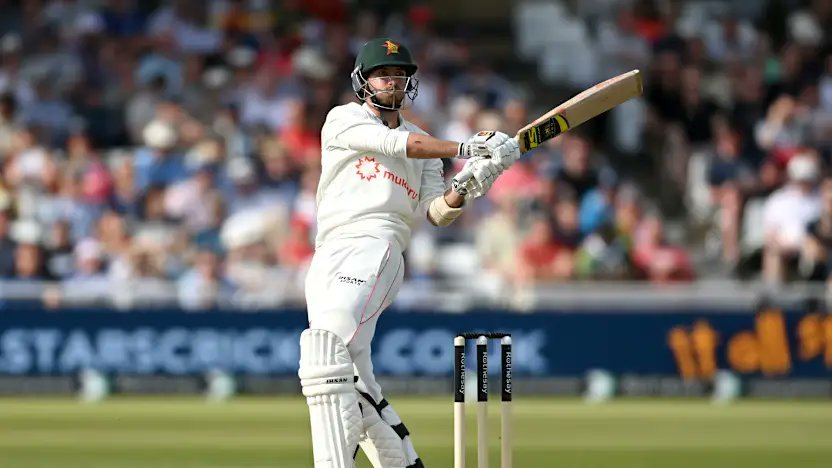
Zimbabwe hopes of mounting a strong resistance against South Africa in the first Test suffered a major setback as one of their key openers was ruled out of the remainder of the match due to a concussion. The incident occurred during the opening day’s play, dealing a blow to a team already under considerable pressure against a highly skilled South African side in foreign conditions.
The opener, whose name was not officially confirmed at the time of the announcement, sustained a head injury after being struck by a sharp bouncer during Zimbabwe innings. The delivery, bowled at considerable pace, reared up unexpectedly from a good length and caught the batter off guard. Despite attempts to sway away, the ball made direct contact with the helmet, prompting immediate concern from medical staff and teammates alike.
Play was halted temporarily as Zimbabwe physio and support staff rushed onto the field to conduct initial concussion assessments. Although the batter initially appeared to be alert and insisted on continuing, he showed signs of discomfort soon after and was eventually retired hurt. Subsequent evaluation in the dressing room confirmed the presence of mild concussion symptoms, leading the team management and medical unit to take a cautious and responsible decision to rule him out of the remainder of the Test.
Under the ICC’s concussion substitution rule, Zimbabwe were allowed to replace the injured player with a like-for-like substitute. However, losing a specialist opener in a Test match is never easy, especially for a side like Zimbabwe that relies heavily on a few experienced individuals to weather the early storm. The absence of a regular top-order batter is particularly damaging when facing a bowling attack of South Africa’s quality, led by Kagiso Rabada and Lungi Ngidi.
The incident serves as a stark reminder of the dangers inherent in the sport, particularly for batters facing hostile fast bowling. In recent years, the ICC has taken important steps to improve player safety, including mandatory helmet checks, improved helmet designs, and stringent concussion protocols. Zimbabwe’s team doctors followed those protocols meticulously, ensuring that the player’s long-term health was prioritised over immediate match considerations.
The injury also had a psychological impact on Zimbabwe dressing room. Having to reshuffle the batting order midway through a Test can affect rhythm and confidence, particularly for a team that already entered the contest as underdogs. Younger players were called upon to fill the void, and while they showed glimpses of promise, the disruption to the batting unit was clear.
From South Africa’s point of view, the loss of Zimbabwe opener gave their bowlers an early psychological edge, and they capitalised on it effectively, tightening their grip on the match as the innings progressed. The Proteas were clinical in their discipline, rarely offering loose deliveries, and they pressed home their advantage by maintaining relentless pressure.
For Zimbabwe, the focus now shifts to how they regroup. With the opener undergoing observation and likely to be out of action for a few days, the team’s batting order will have to find depth and resolve quickly. The concussion is a harsh blow at a crucial juncture, but the incident also highlighted the importance of health and safety in the modern game—where even in the heat of battle, a player’s well-being comes first.
For more news updates, follow 12B Sports India Facebook .

